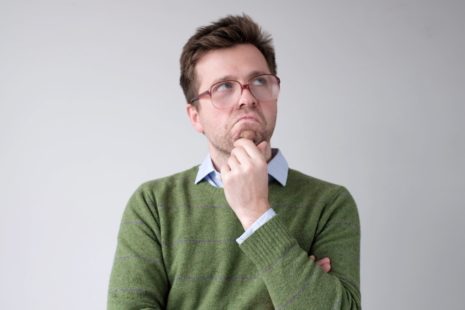 How To Forgive Yourself
How To Forgive Yourself
How can you ask me to forgive fill-in-the-blank? Easy, your un-forgiveness is your prison! When we focus on the past we are unable to have clarity on the future. In the absence of clear vision we always return to our past. Why? Because we go back to what worked even if it didn’t work well! Forgiveness best exemplifies this point. When we hold a grudge we are the person trapped in the past, not the instigator.
Chip Dodd in, The Voice of The Heart, identifies eight feelings, and you might be surprised but only one is a positive feeling. Abundant joy can only be known by experiencing all aspects of life. As described by Chip, the feelings we experience are; hurt, loneliness, sadness, anger, fear, shame, guilt and gladness.
Each feeling has its own specific purpose in helping us live life fully.
- Hurt leads to healing
- Loneliness moves us to intimacy
- Sadness expresses value and honor
- Anger hungers for life
- Fear awakens us to danger and begins wisdom
- Shame maintains humility and mercy
- Guilt brings forgiveness
- Gladness proves hope of the heart to be true
Emotional Self Awareness
Consequently, these negative feelings can lead us to something better, however, we must be able to define and describe the emotion. Hopefully, we learn to forgive. Unfortunately, this is not always the case. In the absence of this self awareness we get stuck. Assuming we can define the emotion we can work on these hurts. Easier said than done, right? But regarding how to forgive, there is no magic wand that you can use. There is no quick fix. The bad news, there is a choice. The choice is to choose to forgive. In the absence of this choice no forgiveness can occur.
What Forgiveness Is Not
The best example of dealing with past pain is finding a way to forgive those who have wounded us. If you’re unable to forgive someone for a previous wrong, you become the one trapped in bitterness. If you think a coworker has said something negative about you, you can only move forward when you release this idea or confront your coworker.
Un-forgiveness keeps you trapped in the past, as does any number of other stimuli, like harboring a grudge, worrying about what others think of you, or allowing conflict to remain unresolved. These can become cyclical problems when your negative thoughts occupy your mind in an unhealthy way and generate poor self-talk. Then your inner critic kicks in, which results in disharmony with others. Left unresolved and you stay stuck in a cycle of suffering.
The first step to learning to forgive is learning what forgiveness is not. For those who value harmony above conflict these actions will be more difficult. You are only fooling yourself if you believe harmony can be found without conflict. Freud said,
“Unexpressed emotions will never die. They are buried alive and will come forth later in uglier ways.” Freud
How To Forgive
However difficult it may be, recovery comes when we can successfully leave the things from the past in the past. Seek forgiveness or offer forgiveness when appropriate. The first step in forgiveness is an accurate assessment of reality. The facts. Get them. Find out why the facts hurt you. Next, face the fact that you are human and so is the person who hurt you. We are hurt and we hurt others. This is our human condition. Once you have this realization, find a way to vent. Write it down. Talk to a therapist or coach. Don’t gossip! By doing so you will only make matters worse. Finally, make a choice. Choose to forgive or choose to remain a captive to un-forgiveness. You only hurt yourself by remaining fixated on a hurtful experience.
How To Forgive Yourself
Go back to the previous paragraph: make an accurate assessment of reality. If you have hurt someone, and seeking forgiveness will not make matters worse, ask for their forgiveness. Next, realize your human condition. You hurt people! I hurt people. This is not an excuse to continue treating others poorly. In fact, this realization will help you treat other people better. Realize your insecurities and your weaknesses. No one is perfect. Acceptance of your weaknesses is a great first step to living interdependently with people who can count on your strengths!
We all have insecurities. Many times they are only true in our imagination. “S/he doesn’t like me because s/he never says hello. They’re talking about me. I can’t do that. I’ve always been that way. That’s just how I was made,” and this list could go on and on. Really? It is a natural tendency to find our worth in other people’s opinions and/or our performance. This should not define you! The path to your identity is found in truth. You were made for a purpose!







